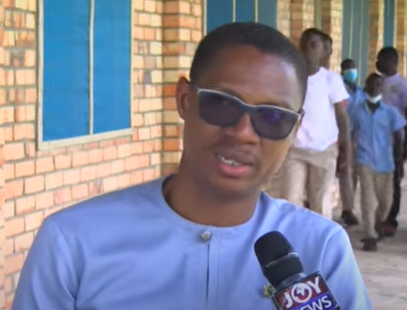The deputy Ranking Member on Parliament’s Constitutional, Legal and Parliamentary Affairs Committee, Francis-Xavier Sosu, has addressed misconceptions concerning the Affirmative Action Bill.
Speaking on JoyNews’ The Probe, the Madina legislator noted that the passage of the bill into law will not displace men in the decision-making process.
“It will be an erroneous conception to think that the Affirmation Action Bill seeks to displace men. You know, we have a historical wrong, and when laws are going to be made, you first want to identify the mischiefs the law seeks to cure,” he said.
Highlighting the existing gender disparities, Mr Sosu acknowledged that despite women outnumbering men in Ghana, they still lack equal representation and decision-making power.
He attributed this imbalance to cultural, historical, and social factors, emphasising that legislation is the key to rectifying this long-standing issue.
"As we speak today, women are more than men in Ghana, yet they don’t have an equal stake when it comes to decisions that concern them and things that border on women. So how do we solve that problem?
“This problem is cultural, historical, and social. And the only way we can resolve this problem is by legislation,” he explained to host Emefa Apawu.
The Affirmative Action Bill in Ghana aims to address historical gender inequalities by promoting the active participation of women in decision-making roles across various sectors.
The legislation seeks to create a more inclusive environment, acknowledging the underrepresentation of women despite their majority in the population.
The bill proposes measures such as reserved seats for women in Parliament and other decision-making bodies, as well as advocating for equal opportunities in educational and professional spheres.
Advocates argue that these affirmative actions are necessary to rectify systemic gender imbalances and empower women to contribute meaningfully to the development of the nation.
Nonetheless, after nearly 60 years following the Affirmative Action move of the 1960s, Ghana has failed to meet the minimum UN recommended threshold of 30 per cent women representation in either the local or the national level decision-making process.
In the early days after Ghana gained its independence, the country legislated an Affirmative Action Act in the middle of 1960 allowing 10 women members to represent the regions of the country in the then legislature.
The law recognised that women’s political participation is a critical component of democratic dialogue and social cohesion.
However, it was lost under the weight of the political upheavals which took place in the intervening years of the country.
The nation has since made various commitments by signing to global declarations and protocols that advocated for increased women’s participation and representation in public life.
Ghana’s Parliament in 2011 re-initiated processes to have the Affirmative Action bill passed into law, but the efforts have suffered setbacks and to date, the bill has failed to pass the basic parliamentary proceedings.
Latest Stories
-
Saminu Abdul Rasheed smashes national record again with 9.84s sprint in Georgia
2 hours -
Blekusu Coastal project: We’re reclaiming our coastlines – Housing Minister
5 hours -
Pricey plantains push Ghana’s market sellers to diversify
5 hours -
Full list: NPP delegates approve 54 reform motions, reject proposals on youth age, election supervision
5 hours -
WAFCON 2024: Cynthia made it easy – Chantelle hails goalkeeper after penalty saves
5 hours -
Cyber Security Authority boss suspended over use of military bodyguard
5 hours -
WAFCON 2024: I want to make history – Grace Asantewaa dreams of lifting the trophy
5 hours -
Afenyo-Markin accuses NDC of rebranding and claiming credit for NPP projects
6 hours -
2024 WAFCON: Grace Asantewa shines as Black Queens reach semis
6 hours -
WAFCON 2024: Ghana beat Algeria 4-2 on penalties to book semi-final spot for the first time since 2016
6 hours -
NPP Delegates reject motion to shift polling station selection oversight to regional committees
6 hours -
2024 WAFCON: Black Queens set up semifinal clash with hosts Morocco
6 hours -
Dr. Amuasi champions healthy sustainable socio-ecological systems thinking in Lancet One Health Commission Report
6 hours -
Without unity, we’re just individuals with ambition – Afenyo-Markin
6 hours -
Rebecca Tweneboah Darko: Scattered thoughts; Scary times
6 hours

